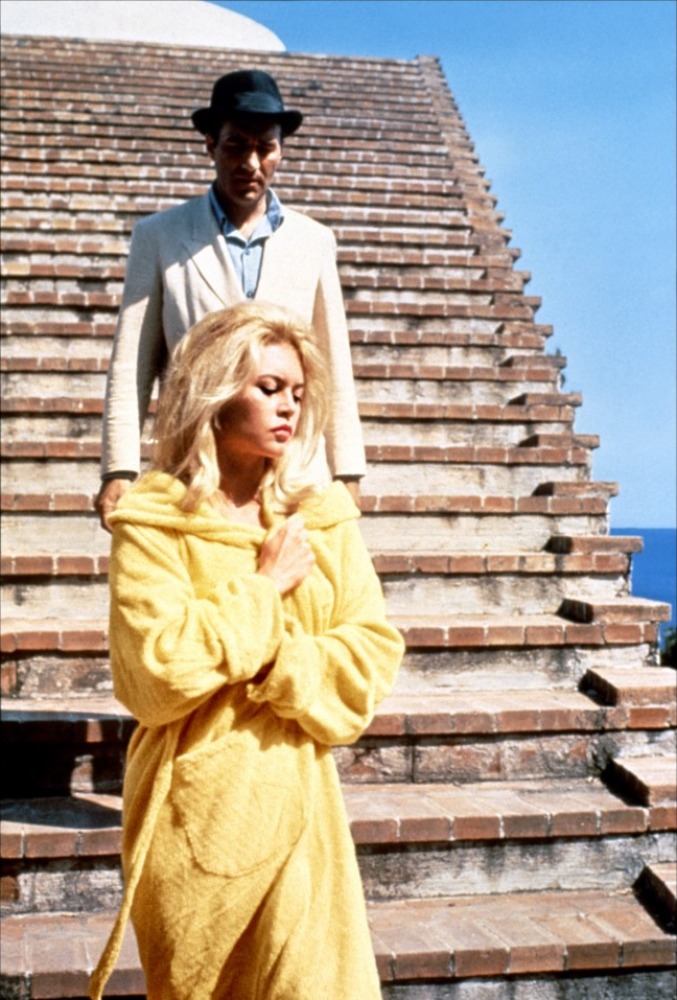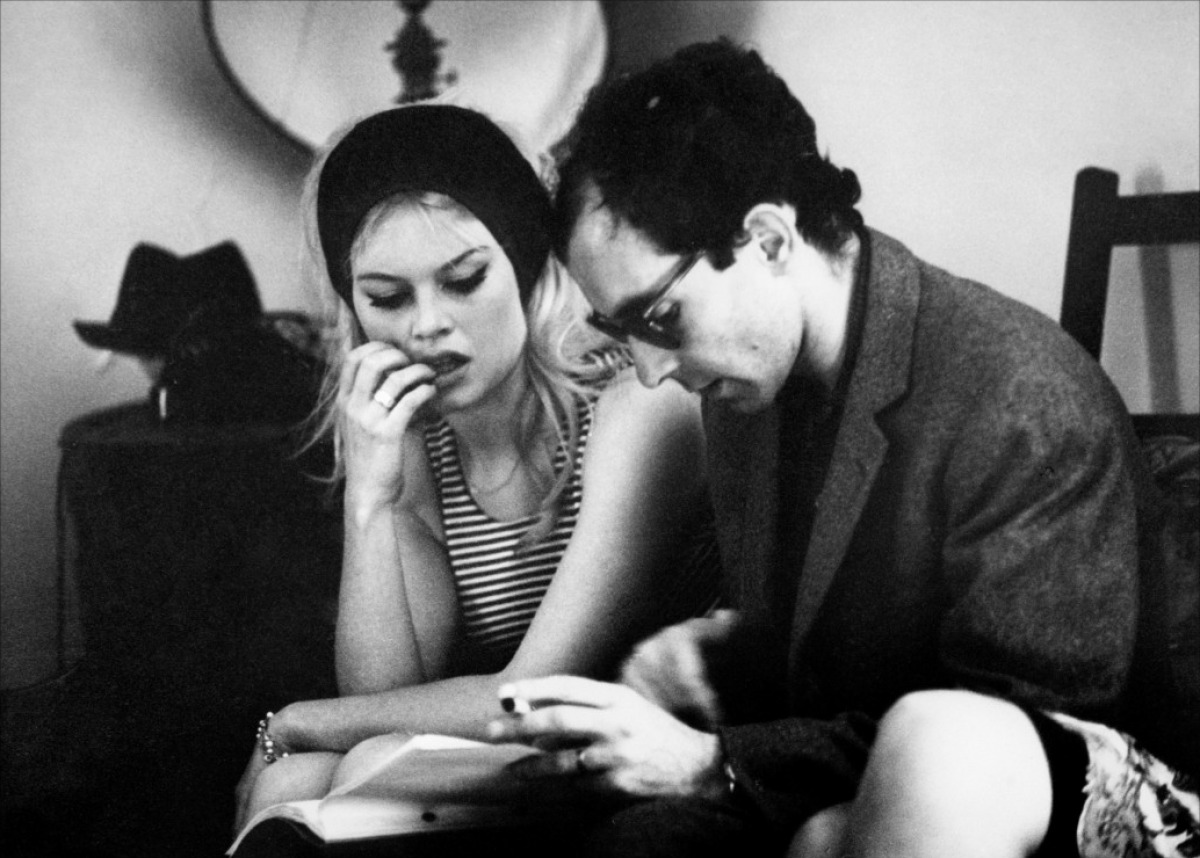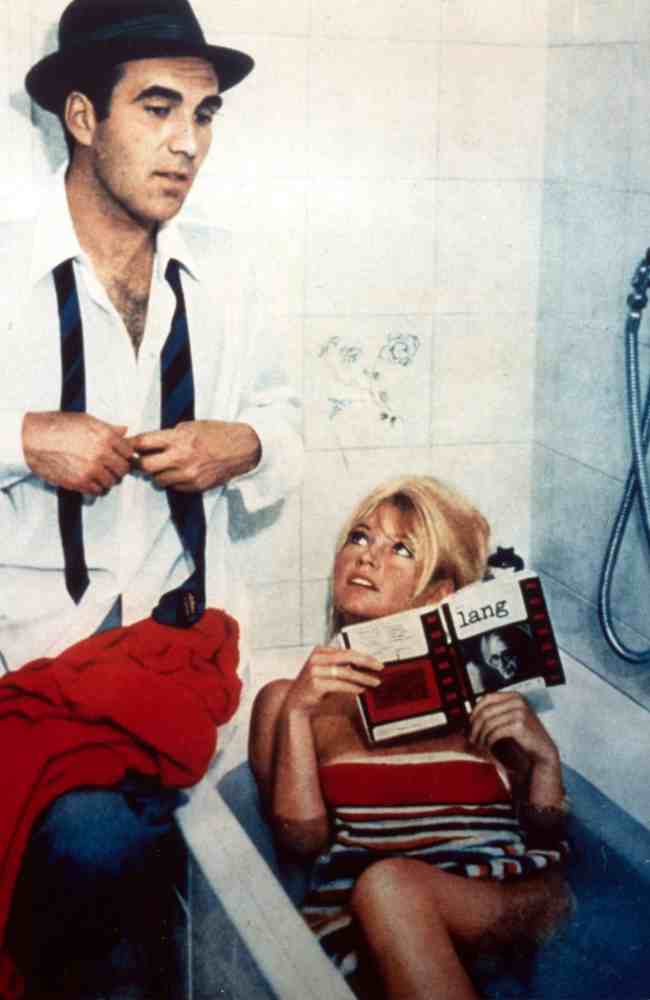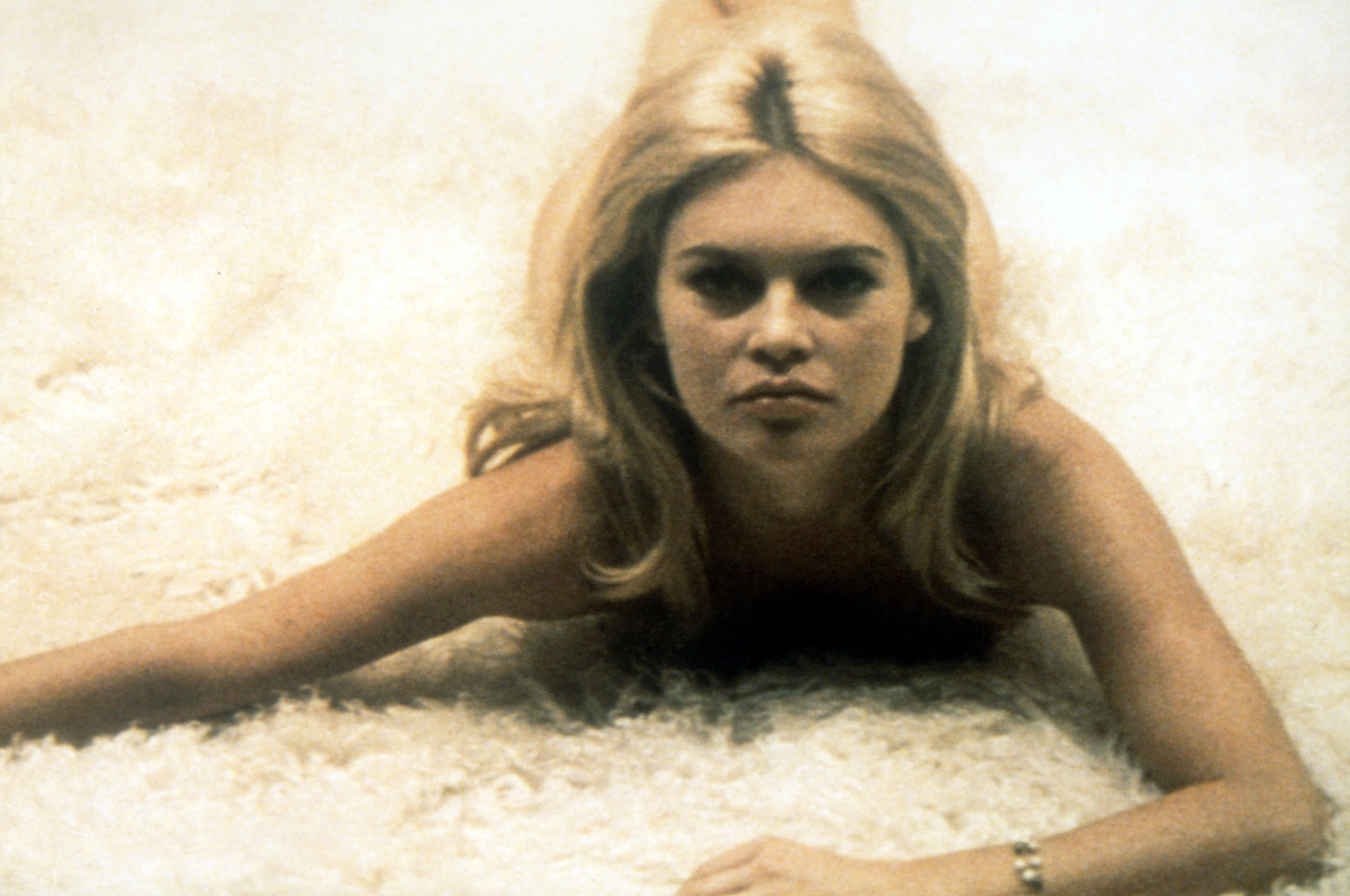ABOUT STOP PRESS
Stop Press is ISBN Magazine’s guide to happenings in Hong Kong. From art to auctions and from food to fashion, to entertainment, cinema, sport, wine and design, scroll through the best of the city's dynamic cultural offerings. And if your event merits mention in our little book of lifestyle chic, write to us at stoppress@isbn-magazine.com
Jean-Luc Godard's 'Contempt'
The film shows at the Hong Kong Film Archive Cinema on February 5th at 2:30pm, and local critic Bryan Chang will host a post-screening talk in Cantonese.

Contempt (Le Mépris)
 Dir/ Scr: Jean-Luc Godard
Dir/ Scr: Jean-Luc Godard
Orig Story: Alberto Moravia
Cast: Brigitte Bardot, Michel Piccoli, Jack Palance,
Fritz Lang
Pho: Raoul Coutard
Eds : Agnès Guillemot, Lila Lakshmanan
Music: Georges Delerue
1963 / Colour / 35mm / French & English / Eng Subtitles / 110min
Having screened François Truffaut’s Day For Night (1973) in early January, Hong Kong Film Archive (HKFA)’s “Restored Treasures” will show Jean-Luc Godard’s Contempt.
Action: Camille [Brigitte Bardot] lies nude, face down on a bed. Paul [Michel Piccoli] slouches beside her dressed. “Do you like my feet?” she asks. “And my ankles?” Paul approves. “And how about my shoulders?” The colour filter changes from white to red and from white to blue as the camera tracks Camille’s ravishing body like a scanner. Paul answers yes to the inventory of her booty, then tells her: “I love you totally, tenderly, tragically.” It’s a nude scene with no sex, and doesn’t appear to bask in post-conjugal glow despite Camille’s aura.
Le Mepris [1963] - Contempt - is a stately film full of unexpected surprises. It might be seen as a lavish commercial Hollywood production, but director Jean-Luc Godard presents it as a lament on the inherent conflict between art and commercialism in filmmaking. Rather than promote the sex kitten Bardot was associated with, Godard subverts type and instead uses his film to portray producers as pimps and directors as their doxies. He even intellectualises Camille – she reads a book about Fritz Lang in the bath at one point (below right).
Contempt follows conflicted scriptwriter Paul, a French playwright living in Rome, [Camille is his disillusioned wife] whose been contracted to work on a film adaptation of Homer's The Odyssey. His boss is egotistical - borderline despotic - American producer Jeremy Prokosch, played by Jack Palance. Prokosch struts around the set delivering one-liners like: “whenever I hear the word culture I reach for my cheque book” and hurling film reels around the screening room when he’s displeased with the rushes. Prokosch isn’t happy with the work of his Austrian director Fritz Lang, who’s played with relish by himself. 
Camille, who supported Paul’s move from stage to screen, starts to resent and then hate him. She leaves him for Prokosch, with tragic results. Paul returns to the stage and Lang is left to complete his fractured Odyssey.
Emotionally direct – part reflection on Godard’s married life – Contempt is a provocative musing on the ties between art and life. The extended central apartment scene in which Camille and Paul's relationship disintegrates is a work of art to watch. The film is rich to look at, with large expanses of deep colour and actors floating around like butterflies. Bardot's still the princess of pout, seducing the saturated landscape while Godard pours on Matisse by the ton. This is ravishing cinema.
 It scorches with style too, courtesy of Godard's technical virtuosity; credits are read aloud in voice over, hand-held camera work, jump cuts, improvised acting gestures, inter-textual references, non-actors appearing in scenes. One minute it watches like documentary, the next, panoramic technicolour cinema. No matter how spontaneous or languorous, each scene exudes suggestiveness, as though something is about to happen. Such desirable displacement makes Contempt compelling and richly cool cinema.
It scorches with style too, courtesy of Godard's technical virtuosity; credits are read aloud in voice over, hand-held camera work, jump cuts, improvised acting gestures, inter-textual references, non-actors appearing in scenes. One minute it watches like documentary, the next, panoramic technicolour cinema. No matter how spontaneous or languorous, each scene exudes suggestiveness, as though something is about to happen. Such desirable displacement makes Contempt compelling and richly cool cinema.
“A simple film without a mystery, an Aristotelian film, stripped of appearance, Le Mepris proves in 149 shots that in the cinema, as in life, there is no secret, nothing to elucidate, merely the need to live- and to make films” – Jean-Luc Godard in Godard on Godard.
Images: Leisure and Cultural Services Department, Hong Kong
Jean-Luc Godard's 'Contempt'
The film shows at the Hong Kong Film Archive Cinema on February 5th at 2:30pm, and local critic Bryan Chang will host a post-screening talk in Cantonese.

Contempt (Le Mépris)
 Dir/ Scr: Jean-Luc Godard
Dir/ Scr: Jean-Luc Godard
Orig Story: Alberto Moravia
Cast: Brigitte Bardot, Michel Piccoli, Jack Palance,
Fritz Lang
Pho: Raoul Coutard
Eds : Agnès Guillemot, Lila Lakshmanan
Music: Georges Delerue
1963 / Colour / 35mm / French & English / Eng Subtitles / 110min
Having screened François Truffaut’s Day For Night (1973) in early January, Hong Kong Film Archive (HKFA)’s “Restored Treasures” will show Jean-Luc Godard’s Contempt.
Action: Camille [Brigitte Bardot] lies nude, face down on a bed. Paul [Michel Piccoli] slouches beside her dressed. “Do you like my feet?” she asks. “And my ankles?” Paul approves. “And how about my shoulders?” The colour filter changes from white to red and from white to blue as the camera tracks Camille’s ravishing body like a scanner. Paul answers yes to the inventory of her booty, then tells her: “I love you totally, tenderly, tragically.” It’s a nude scene with no sex, and doesn’t appear to bask in post-conjugal glow despite Camille’s aura.
Le Mepris [1963] - Contempt - is a stately film full of unexpected surprises. It might be seen as a lavish commercial Hollywood production, but director Jean-Luc Godard presents it as a lament on the inherent conflict between art and commercialism in filmmaking. Rather than promote the sex kitten Bardot was associated with, Godard subverts type and instead uses his film to portray producers as pimps and directors as their doxies. He even intellectualises Camille – she reads a book about Fritz Lang in the bath at one point (below right).
Contempt follows conflicted scriptwriter Paul, a French playwright living in Rome, [Camille is his disillusioned wife] whose been contracted to work on a film adaptation of Homer's The Odyssey. His boss is egotistical - borderline despotic - American producer Jeremy Prokosch, played by Jack Palance. Prokosch struts around the set delivering one-liners like: “whenever I hear the word culture I reach for my cheque book” and hurling film reels around the screening room when he’s displeased with the rushes. Prokosch isn’t happy with the work of his Austrian director Fritz Lang, who’s played with relish by himself. 
Camille, who supported Paul’s move from stage to screen, starts to resent and then hate him. She leaves him for Prokosch, with tragic results. Paul returns to the stage and Lang is left to complete his fractured Odyssey.
Emotionally direct – part reflection on Godard’s married life – Contempt is a provocative musing on the ties between art and life. The extended central apartment scene in which Camille and Paul's relationship disintegrates is a work of art to watch. The film is rich to look at, with large expanses of deep colour and actors floating around like butterflies. Bardot's still the princess of pout, seducing the saturated landscape while Godard pours on Matisse by the ton. This is ravishing cinema.
 It scorches with style too, courtesy of Godard's technical virtuosity; credits are read aloud in voice over, hand-held camera work, jump cuts, improvised acting gestures, inter-textual references, non-actors appearing in scenes. One minute it watches like documentary, the next, panoramic technicolour cinema. No matter how spontaneous or languorous, each scene exudes suggestiveness, as though something is about to happen. Such desirable displacement makes Contempt compelling and richly cool cinema.
It scorches with style too, courtesy of Godard's technical virtuosity; credits are read aloud in voice over, hand-held camera work, jump cuts, improvised acting gestures, inter-textual references, non-actors appearing in scenes. One minute it watches like documentary, the next, panoramic technicolour cinema. No matter how spontaneous or languorous, each scene exudes suggestiveness, as though something is about to happen. Such desirable displacement makes Contempt compelling and richly cool cinema.
“A simple film without a mystery, an Aristotelian film, stripped of appearance, Le Mepris proves in 149 shots that in the cinema, as in life, there is no secret, nothing to elucidate, merely the need to live- and to make films” – Jean-Luc Godard in Godard on Godard.
Images: Leisure and Cultural Services Department, Hong Kong
